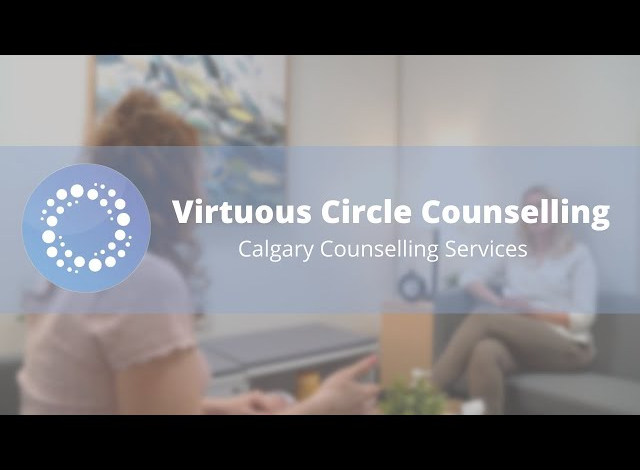Virtuous Circle Counselling: A Pathway to Psychological Healing and Personal Growth

Virtuous Circle Counseling is a contemporary approach to therapy that emphasizes the interconnectedness of thoughts, emotions, and behaviors. Unlike traditional counseling methods that often focus solely on symptom relief, virtuous circle counseling aims to create a positive feedback loop of self-awareness, empowerment, and growth. In this article, we delve into the essence of virtuous circle counseling, its principles, benefits, techniques, and applications.
Understanding the Concept of Virtuous Circles
What are Virtuous Circles?
Virtuous circles are self-reinforcing cycles where positive actions or emotions lead to further positive outcomes, creating an upward spiral of growth and well-being. In counseling, this concept is applied to facilitate positive changes in clients’ lives by reinforcing adaptive behaviors and thoughts.
Importance in Counseling
In the context of counseling, virtuous circles play a crucial role in breaking negative patterns and promoting resilience. By harnessing the power of positivity, counselors help clients build momentum towards their goals and navigate challenges with greater confidence.
Benefits of Virtuous Circle Counseling
Virtuous Circle Counselling offers a plethora of benefits for individuals seeking personal development and emotional healing.
Psychological Healing
Through the cultivation of self-awareness and positive coping mechanisms, virtuous circle counseling aids in healing emotional wounds and trauma. Clients learn to reframe their experiences, fostering resilience and inner peace.
Personal Growth
By fostering a growth mindset and encouraging self-reflection, virtuous circle counseling propels clients towards self-actualization and fulfillment. As individuals gain insights into their strengths and values, they become empowered to pursue meaningful goals and aspirations.
Improved Relationships
Virtuous circle counseling fosters healthier interpersonal dynamics by enhancing communication skills and empathy. Clients learn to cultivate nurturing relationships based on mutual respect and understanding, leading to greater harmony in their social networks.
Principles of Virtuous Circle Counseling
The efficacy of virtuous circle counseling hinges on several core principles that guide the therapeutic process.
Empathy and Understanding
Central to virtuous circle counseling is the therapist’s ability to empathize with clients’ experiences and perspectives. By fostering a nonjudgmental and compassionate environment, therapists create a safe space for clients to explore their emotions and vulnerabilities.
Trust and Confidentiality
Establishing trust is paramount in virtuous circle counseling, as it enables clients to open up and share their deepest concerns without fear of judgment or betrayal. Therapists uphold strict confidentiality to ensure the privacy and dignity of their clients.
Collaborative Approach
Virtuous circle counseling operates on the premise of collaboration between the therapist and the client. Through active participation and shared decision-making, clients are empowered to take ownership of their healing journey and enact meaningful changes in their lives.
Techniques Used in Virtuous Circle Counseling
Virtuous circle counseling employs a variety of evidence-based techniques to facilitate positive change and growth.
Active Listening
Therapists practice active listening to fully understand clients’ experiences and emotions. By paraphrasing, clarifying, and reflecting clients’ statements, therapists demonstrate empathy and validation, fostering trust and rapport.
Reflective Questioning
Through reflective questioning, therapists help clients explore their thoughts and feelings more deeply. By encouraging self-reflection and introspection, clients gain clarity and insight into their beliefs and behaviors.
Goal Setting
Setting clear, achievable goals is integral to the virtuous circle counseling process. Therapists work collaboratively with clients to identify their aspirations and develop actionable strategies to realize them, fostering a sense of purpose and direction.
Mindfulness Practices
Mindfulness techniques, such as meditation and deep breathing exercises, are incorporated into virtuous circle counseling to cultivate present-moment awareness and emotional regulation. These practices empower clients to manage stress and anxiety more effectively, promoting overall well-being.
Case Studies: Successful Applications
Case Study 1: Overcoming Trauma
Sarah, a survivor of domestic violence, sought virtuous circle counseling to heal from her past traumas and rebuild her life. Through a combination of narrative therapy and mindfulness techniques, Sarah learned to reframe her experiences and reclaim her sense of agency. Over time, she developed resilience and self-confidence, ultimately breaking free from the cycle of abuse and forging healthier relationships.
Case Study 2: Achieving Personal Growth
John, a young professional struggling with self-doubt and indecision, embarked on a journey of self-discovery through virtuous circle counseling. By exploring his values and aspirations, John gained clarity on his career path and personal goals. With the support of his therapist, he embraced his potential and pursued opportunities for growth, leading to greater fulfillment and success in both his professional and personal life.
Challenges and Limitations
While virtuous circle counseling offers numerous benefits, it is not without its challenges and limitations.
Resistance to Change
Some clients may initially resist the process of self-exploration and change, preferring to remain within their comfort zones. Therapists must employ patience and empathy to navigate resistance and gently guide clients towards growth.
Ethical Considerations
Maintaining ethical boundaries is essential in virtuous circle counseling to safeguard the well-being of clients and uphold professional standards. Therapists must adhere to strict guidelines regarding confidentiality, informed consent, and competence to ensure ethical practice.
How to Find a Virtuous Circle Counselor
Finding the right virtuous circle counselor is crucial for a successful therapeutic experience. Prospective clients can start by researching reputable counseling organizations or seeking recommendations from trusted sources. It’s essential to schedule initial consultations with potential therapists to assess their qualifications, approach, and compatibility with your needs and preferences.
Conclusion
Virtuous circle counseling offers a transformative approach to therapy that emphasizes empowerment, resilience, and personal growth. By fostering positive feedback loops of self-awareness and adaptive behavior, virtuous circle counseling enables individuals to overcome challenges, heal emotional wounds, and thrive in all aspects of their lives.




